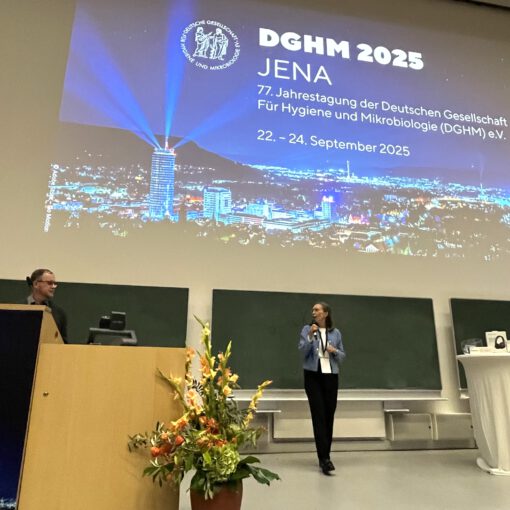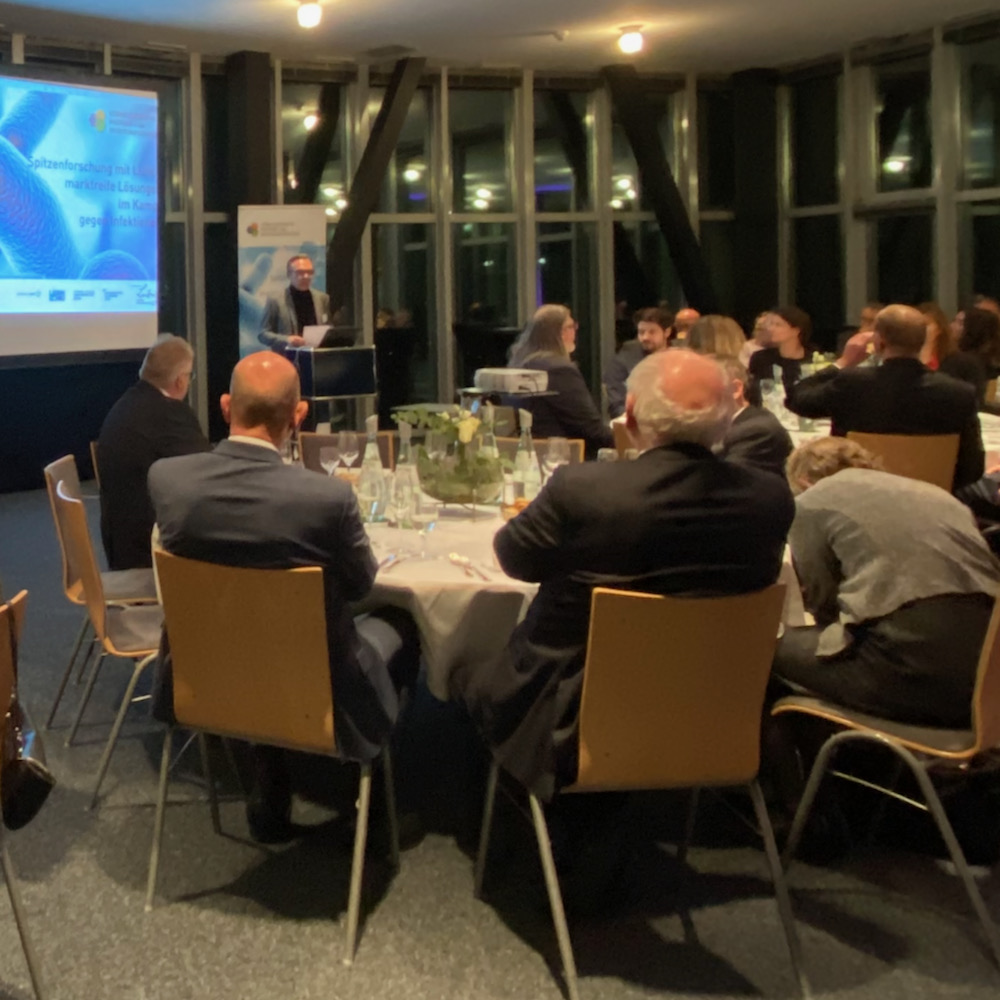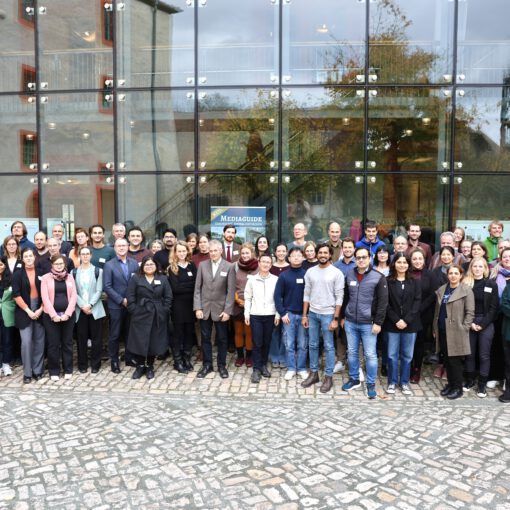Light-based technologies offer enormous potential in the fight against infectious diseases. Their research as well as the development of effective diagnostic methods and therapies are to be revolutionized in Jena in the coming years with the Leibniz Center for Photonics in Infection Research (LPI). In order to get to know the Optical Valley as a traditional location for optical health technologies as well as the LPI, the Federal Minister of Education and Research, Bettina Stark-Watzinger, together with the Thuringian Minister of Economics, Science and Digital Society, Wolfgang Tiefensee, visited the city of science at Leibniz IPHT on November 17, 2022.
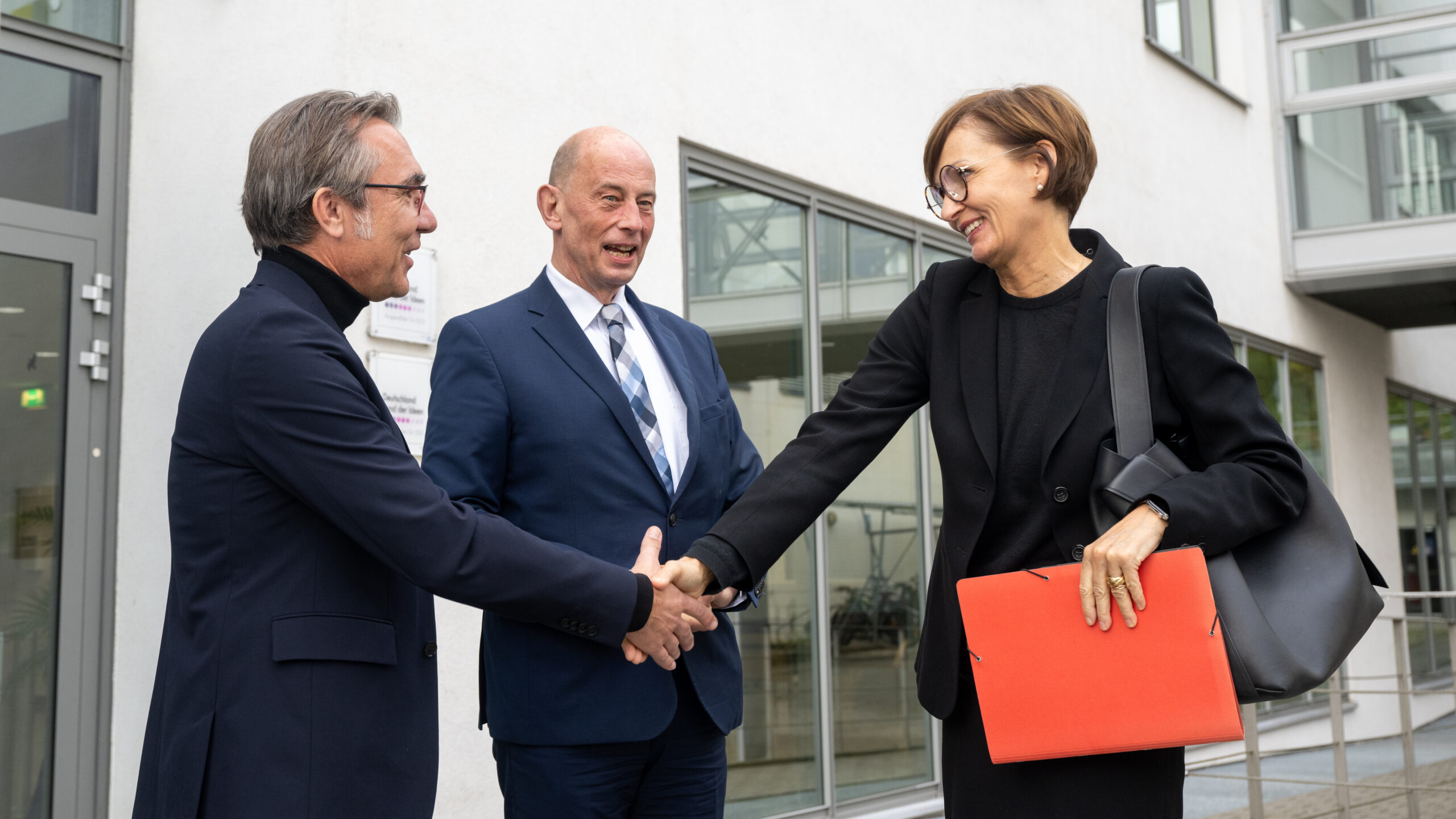
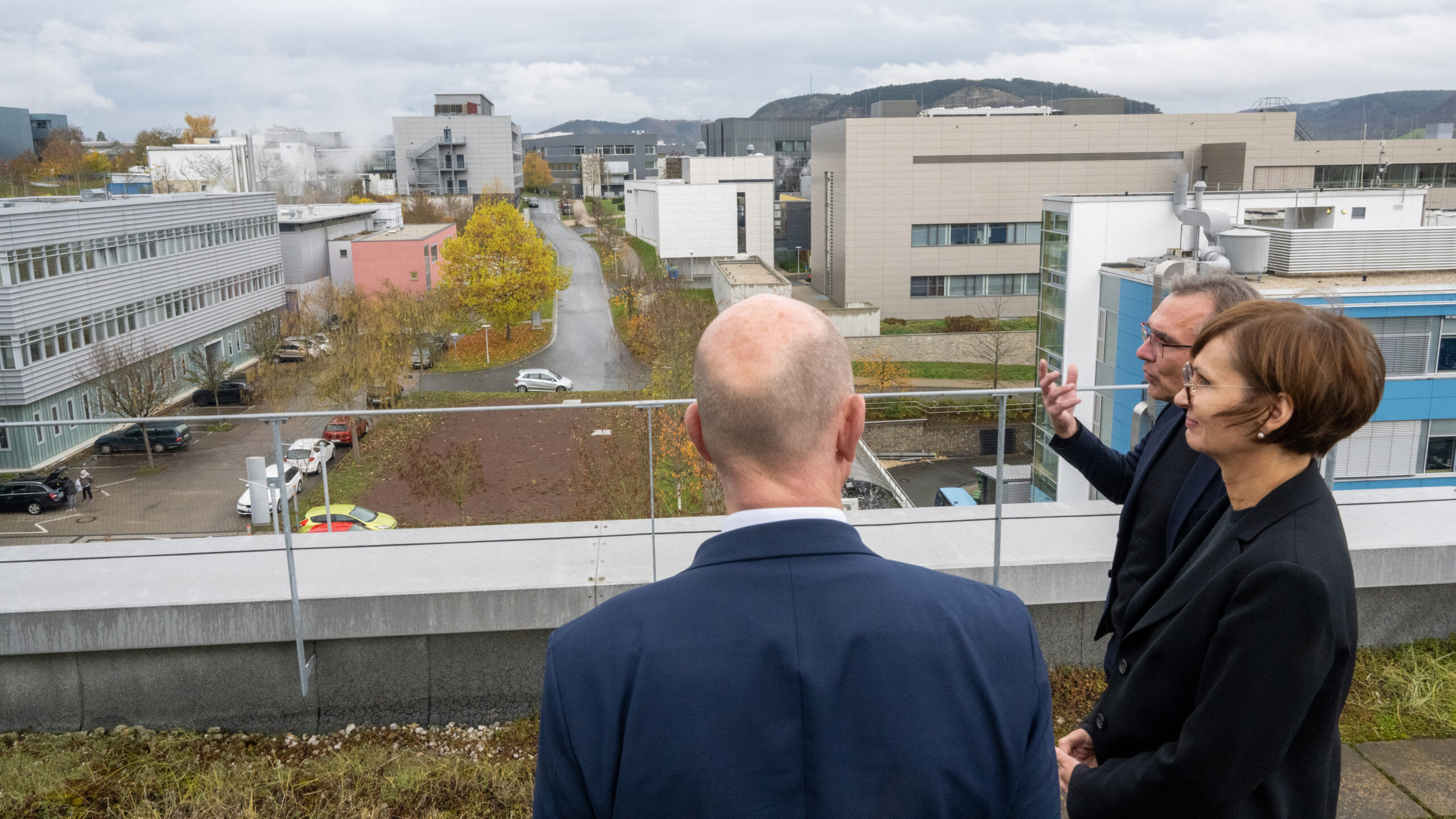
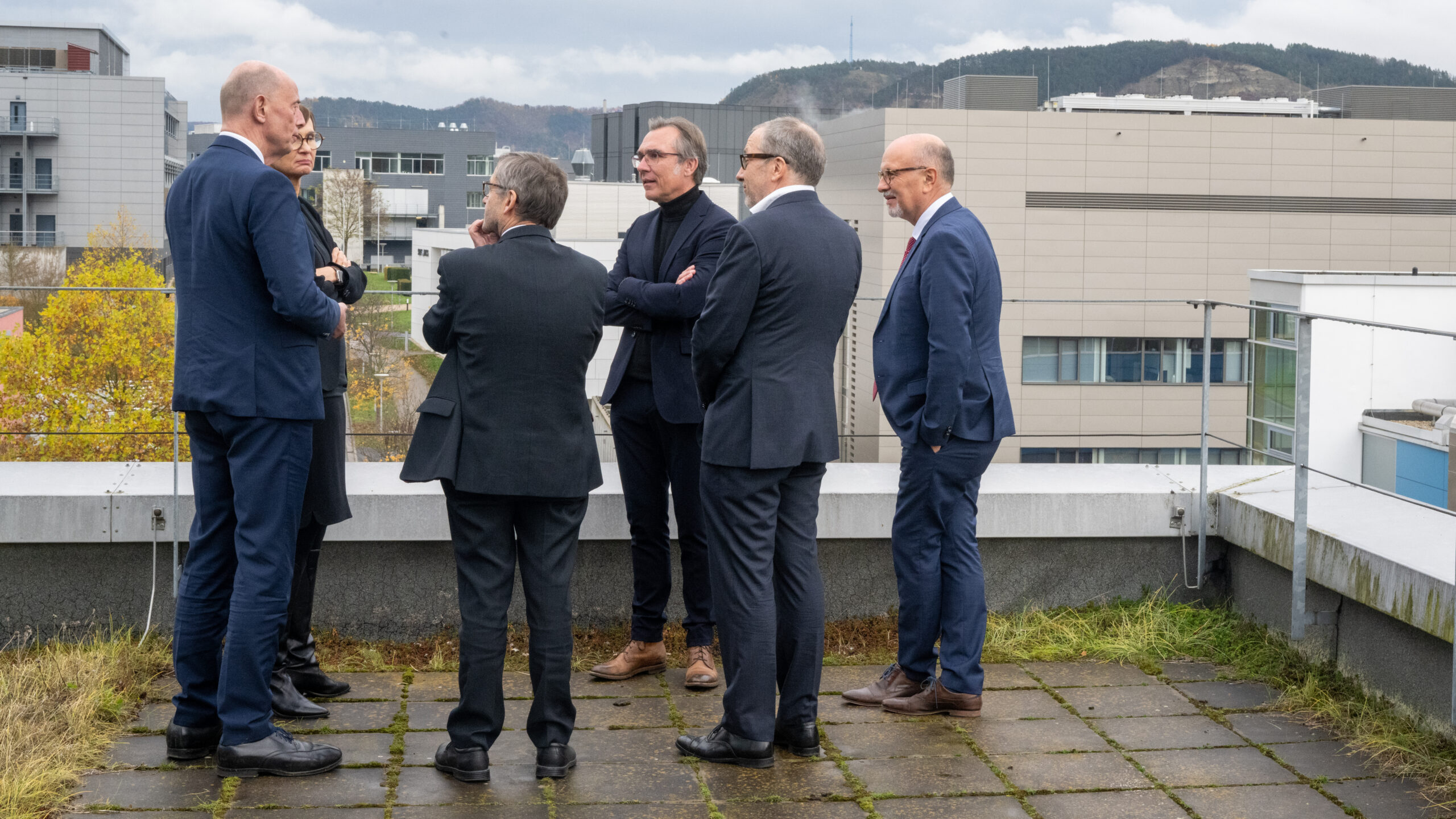
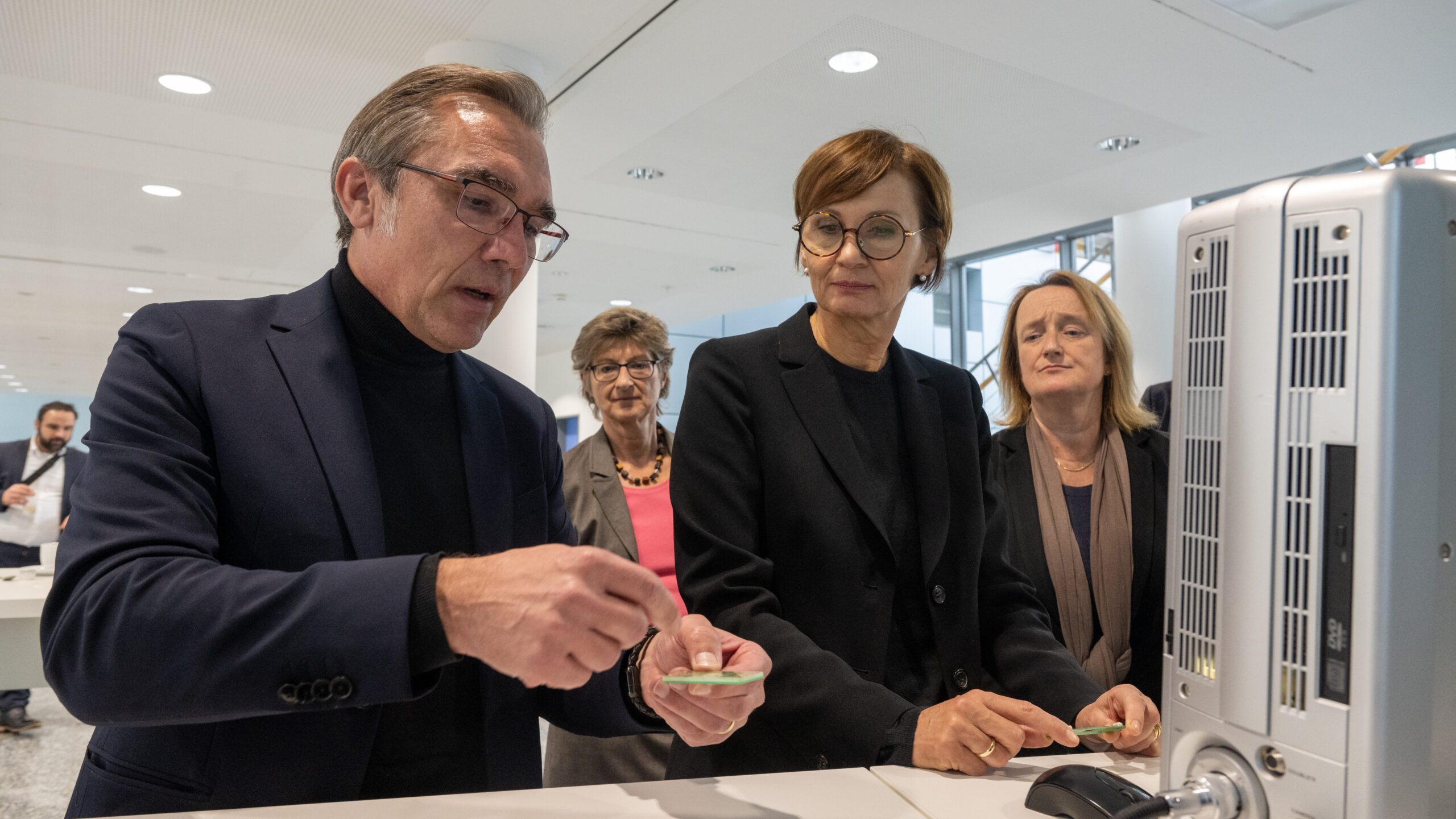
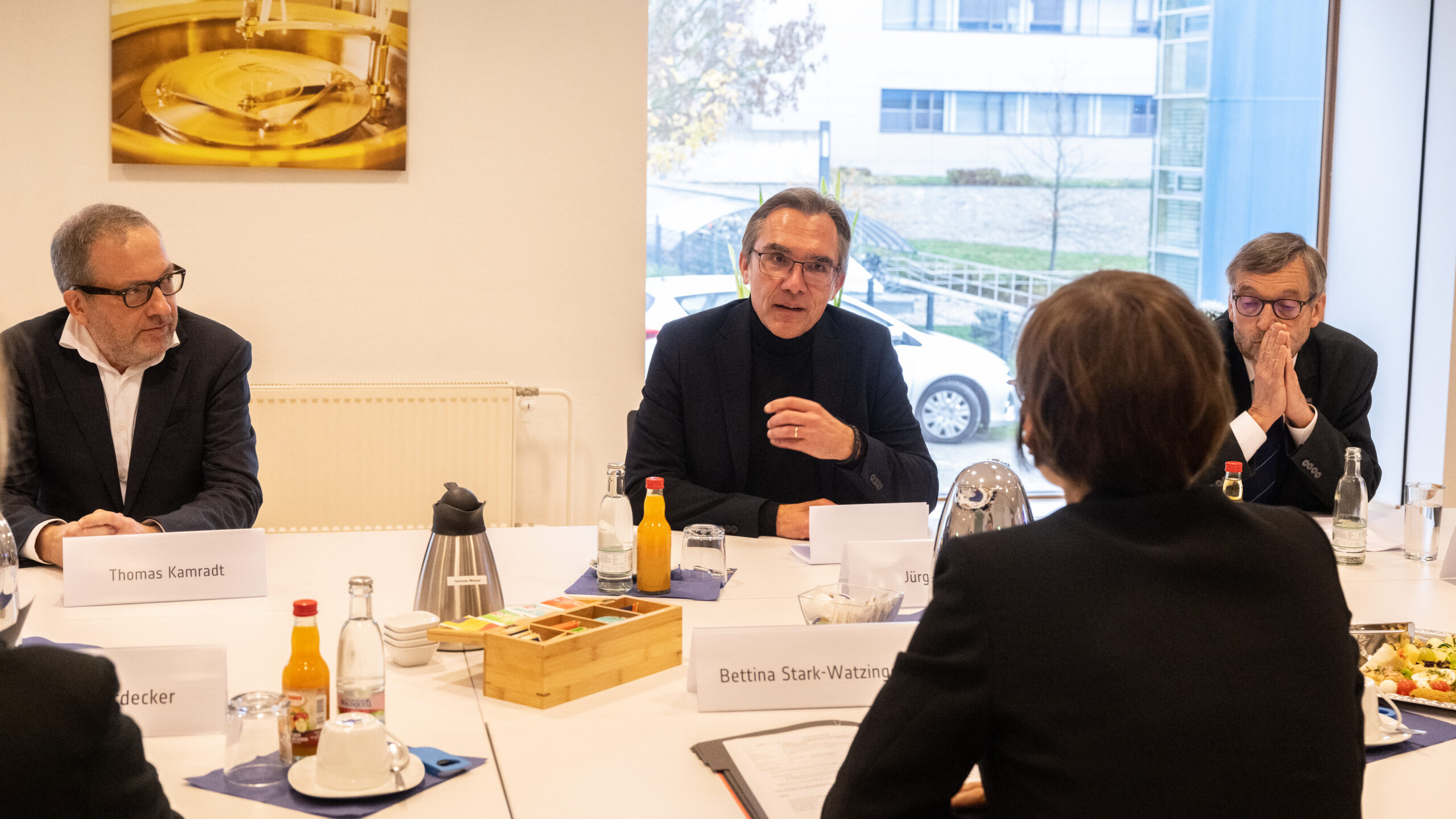
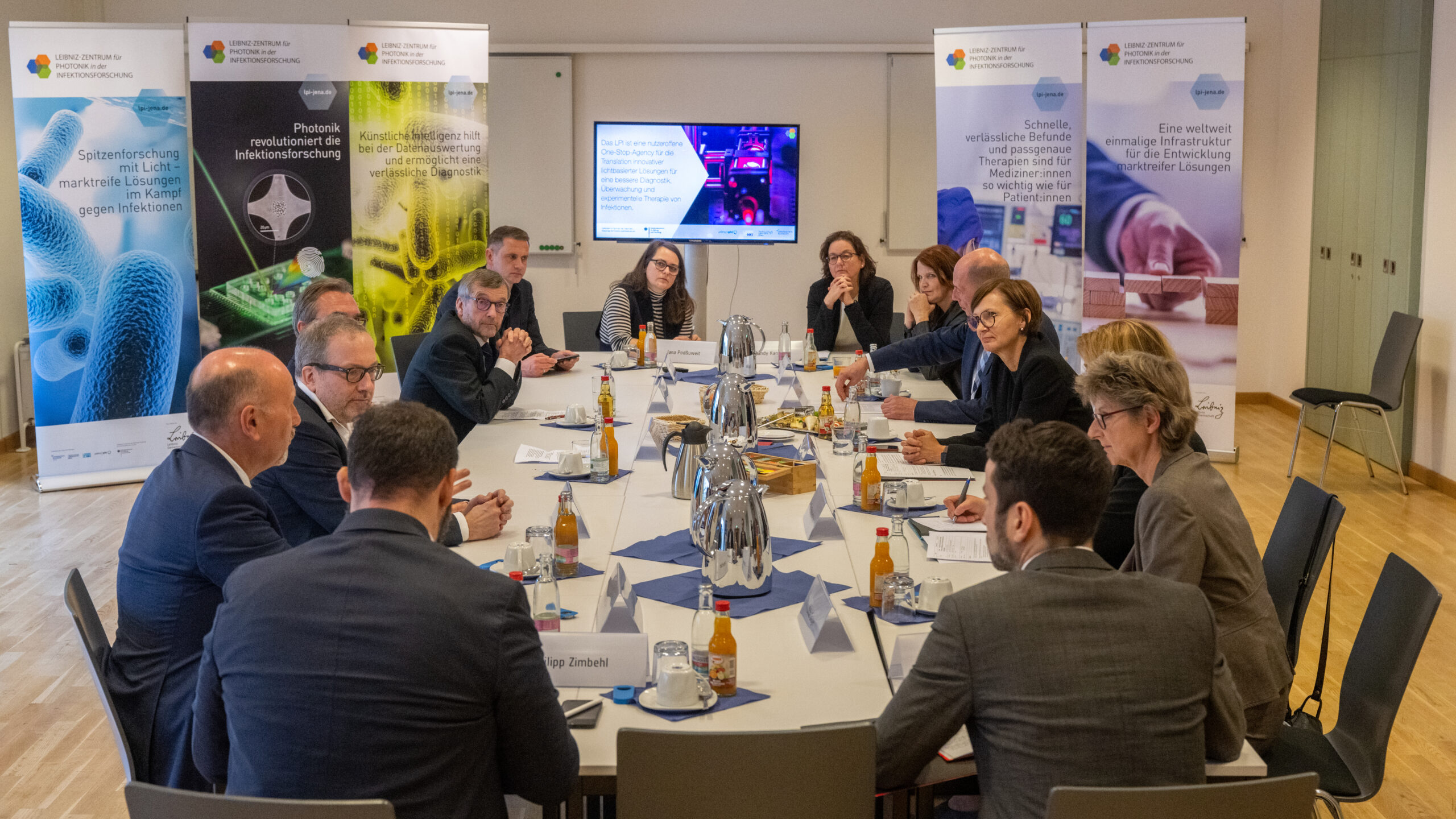
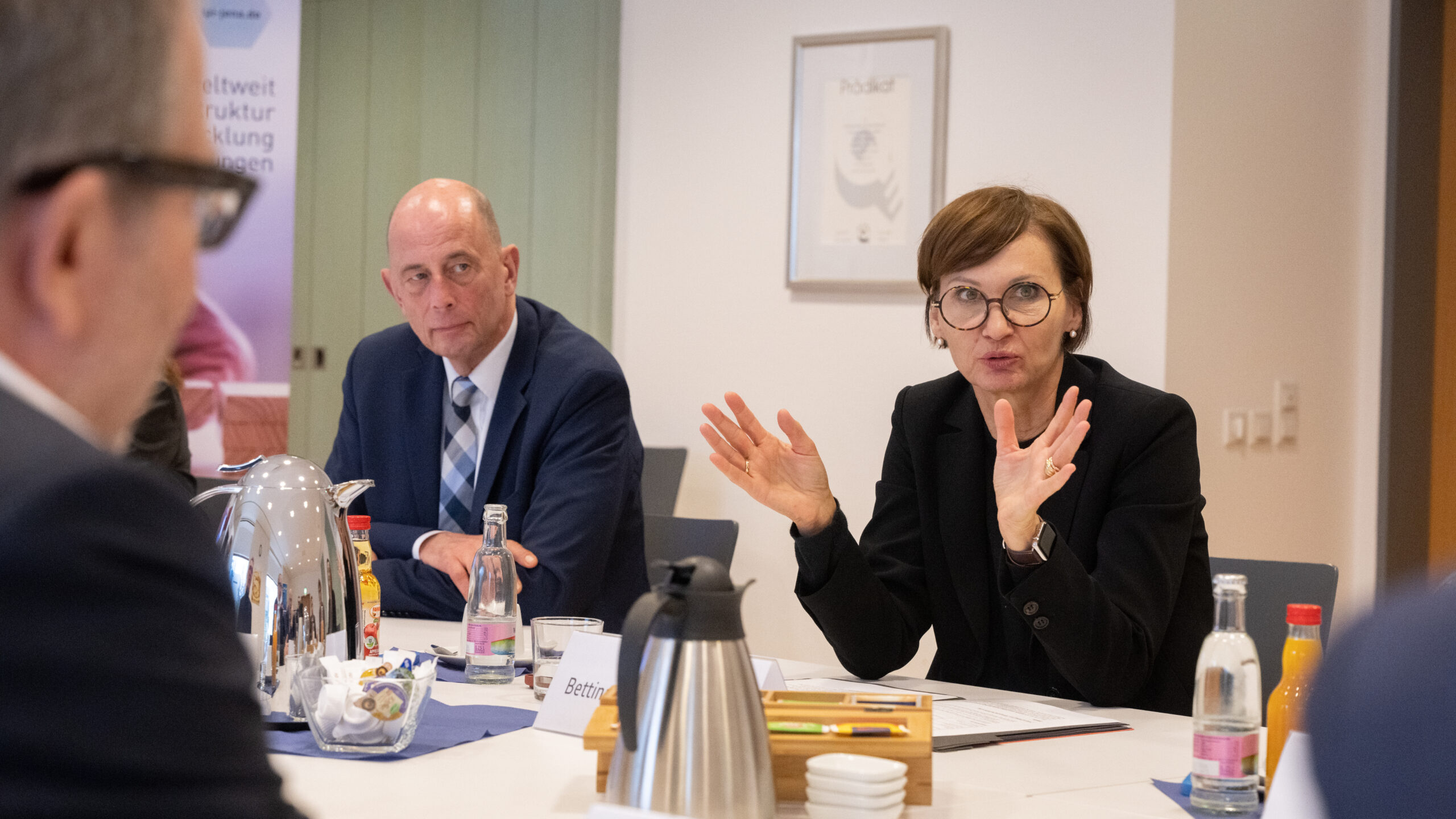
Jena is inextricably linked with names such as Ernst Abbe, Carl Zeiss and Otto Schott and has a long history of developing innovative optical technologies. Photonic solutions are a valuable key technology, especially in the fight against infectious diseases, as they enable the identification of infectious agents and the understanding of the mechanisms of spread in the body quickly, sensitively and contact-free. With their help, diseases can be detected at an early stage and precisely tailored therapies can be initiated quickly. Researching and developing novel diagnostic and treatment methods for infectious diseases is a central concern of LPI.
To get an overview of Jena as a driving force behind smart photonic innovations, especially in the field of infection research, the Federal Minister of Research Bettina Stark-Watzinger and the Thuringian Minister of Economics Wolfgang Tiefensee visited the science city and Leibniz IPHT.
In addition to a presentation of the Beutenberg Campus as a location for excellent science and a starting point for innovative spirit in Jena, intensive discussions about the LPI were on the agenda of the visit.
The LPI, funded by the German Federal Ministry of Education and Research, will provide a globally unique infrastructure to advance the development of new light-based methods for the diagnosis, therapy and control of infectious diseases. Initiated by Leibniz IPHT, University of Jena, the Jena University Hospital and the Leibniz Institute for Natural Product Research and Infection Biology – Hans Knöll Institute – LPI is intended to contribute to the more efficient implementation of research results and to significantly shorten development times to market-ready diagnostic solutions.
During the visit at Leibniz IPHT, the Federal Minister of Research and the Minister of Science had the opportunity to learn about innovative optical technologies and methods for improved infection diagnostics:
The RamanbioassayTM , for example, offers the potential to significantly accelerate the diagnosis of infectious diseases. In laboratory tests, the light-based method was able to identify pathogens, bacteria and their antibiotic resistances within a few hours. Based on these results, physicians could in the future make rapid therapy decisions and thus prevent life-threatening disease progression. High-Throughput Screening Raman Spectroscopy (HTS-RS), a combination of imaging microscopy and Raman spectroscopy, also makes it possible to detect diseases by screening cells. In a very short time, evidence of infection can be identified at high sample throughput.
Federal Research Minister Bettina Stark-Watzinger was impressed by the work of the Jena scientists: „The Corona pandemic has shown us how important excellent infection research is. We want to establish the Leibniz Center for Photonics in Infection Research so that Germany can further expand its leading position in this field in the future. The LPI will be highly innovative and unique in the world: optical technologies, artificial intelligence and medical technology will work together to bring results from research into market-ready applications more quickly, thus helping Germany to remain an international leader. The location in Jena, surrounded by the extensive expertise from the Leibniz Institutes of Photonic Technology and for Natural Product Research and Infection Biology already existing on site, the University of Jena and the Jena University Hospital, creates ideal conditions for this.“
Science Minister Wolfgang Tiefensee particularly emphasized the role of Leibniz IPHT for the Thuringian science landscape: „Leibniz IPHT, especially in the early years significantly supported by the state, is today one of the success factors of the optics location Jena. The institute makes a significant research contribution to the development of new medical diagnostic procedures and therapies and thus to the development of safe medicines. It has also made a significant contribution to the fact that Jena has now developed into a location of international visibility in the field of biophotonics. Leibniz IPHT is significantly involved in six DFG-funded Collaborative Research Centers and the Jena Cluster of Excellence. Today, we are also reaping the fruits of a clear course of profile sharpening and focusing since the mid-2000s, which the Free State of Thuringia has accompanied intensively.“
„It was an honor for us to welcome the Federal Minister of Research and the Thuringian Minister of Economics at Leibniz IPHT and to be able to give an impression of the innovative strength of Jena, the City of Light. Top-level research by the research players based here will further strengthen the international appeal of the city on the Saale as a center for groundbreaking achievements. Only through a wealth of ideas and their implementation in practical solutions we can contribute to finding urgently needed answers to pressing questions of interest to society as a whole. With the LPI, we are on the right path to give infectious diseases and thus one of the world’s most common causes of death no chance in the future and to provide patients with effective therapies,“ concludes Prof. Dr. Jürgen Popp, scientific director at Leibniz IPHT and spokesperson for the LPI.

